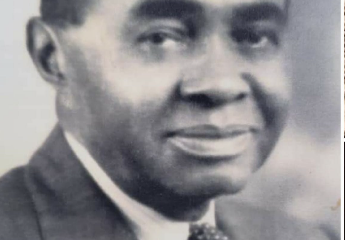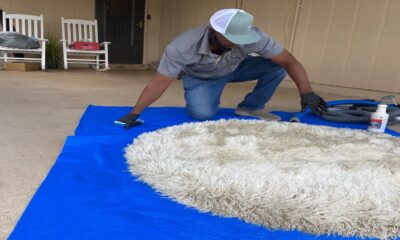Featured
Student-Athletes: Is It About The Game or The Grade?

Over the last six years as a university professor I have been honored to mentor many college students. As they enter the halls of academia they struggle to find their voices amidst the uncertainty of the social and academic pressures associated with a college campus. Along the way I have had an opportunity to mentor several football and basketball players at Division I schools. While I played football in high school and for two years at a Division III school, I have no illusion of understanding the pressures they face based on my experiences. However, I have a fleeting understanding of how they feel as a result of the pressures based on our conversations. With the onslaught of conference realignment and multimillion dollar coaching contracts for those who coach football and basketball particularly, I am concerned about the positionality of African American male student-athletes. While I question the term “student-athlete” and notions of being amateurs when everyone around them seems to be making millions off of their effort, I am called to challenge everyone involved in this system.
Several years ago I was talking to an athlete at a large university about his major. He had stellar grades and was the first person in his family to attend college. He shared his dreams and I shared mine. Along the way he discussed his ambition to become an engineer. The tone in his voice seemed somber when discussing this. When pressed about this he went silent. The silence led to tears. The tears led to anger. The anger led to frustration. His dream didn’t fit with the coaching staffs plan for him or perhaps it didn’t fit with their contracts that offered them six figure incentives for certain accomplishments. Numerous people associated with his sport told him that he wouldn’t be able to complete the courses associated with an engineering major. Instead he was instructed that in order to stay eligible, not “struggle” academically, and make time for practice, he needed to take a major that seemed to amount to a general studies degree. It is not my attempt to suggest that a general studies degree is useless or less than an engineering degree. What I am suggesting is this—why is he attending college; is he there to only play sports or his he really a STUDENT-athlete or ATHLETE-student?
The tragedy of this story is not in the general studies degree but the larger question—what are we preparing these young men to become in society when they are pushed into degree programs that might limit their future earning potential. Some would suggest that they are in school because they will play professionally. What a shame that is for colleges and college coaches who promote that foolishness. I’ll go even deeper—they are lying to so many young, African American kids from poor communities. I’ll go even deeper—they are helping to pad their own pockets…I’d go even further and ask them—Coach X would you tell your own child to major in general studies and not engineering…even if they had superior skills in mathematics and science?
An article in Business Insider (February 2012), “Here Are The Odds That Your Kid Becomes A Professional Athlete (Hint: They’re Small)”, offers data from the NCAA that indicates that only 1.7% of college football players will play professionally and 1.2% of college basketball players will play professionally. With this data in mind, and the coaches rhetoric about helping them to become men, I ask these coaches, NCAA officials, and university administrators—do you really care about these young people or do you care more about winning? As a university professor I appreciate the attention that sports brings to the university—be it the national championship in football or participating in the NCAA basketball tournament. As an African American man who grew up in a poor to working class neighborhood in Detroit, being raised by my mother and grandmother, while dealing with the consistent incarceration of my father, I am appalled that so many people have allowed this system to flourish. I am outraged that so many African Americans involved with major college athletics have allowed this system to continue. Am I suggesting that the African American community shouldn’t let our children play Division I sports—not at all. What I am suggesting is that we take a stand and challenge the NCAA and the colleges. It is not enough to promote the graduation rates of the student-athletes. The larger issue is this—are their academic dreams being nurtured in the same ways that their athletic prowess is being developed?

-

 Black History5 months ago
Black History5 months agoThe untold story of a Black woman who founded an Alabama hospital during Jim Crow
-

 Featured9 months ago
Featured9 months ago‘No Closure’ In Town Where Five Black Residents Were Either Murdered, Died Suspiciously Or Are Missing
-

 Black History9 months ago
Black History9 months agoBlack History Lost and Found: New Research Pieces Together the Life of Prominent Texas Surgeon and Activist
-

 Featured9 months ago
Featured9 months agoFounder of “The Folding Chair” Podcast Calls Montgomery’s Brawl ‘Karma’
-

 Featured8 months ago
Featured8 months agoThousands ‘Live Their Dream’ During National Black Business Month
-

 Featured10 months ago
Featured10 months agoJuneteenth And ‘246 Years Of Free Labor’ Are Key To Conversations About Reparations

